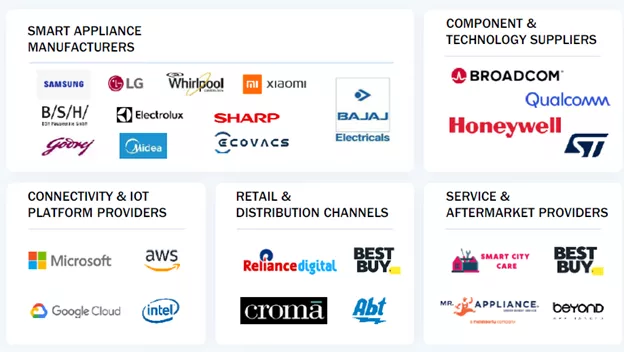The global AI camera market in terms of revenue was estimated to be worth USD 7.6 billion in 2023 and is poised to reach USD 22.1 billion by 2028, growing at a CAGR of 23.9% from 2023 to 2028. The new research study consists of an industry trend analysis of the market.
AI cameras generate vast amounts of data. Companies are leveraging this data for actionable insights, which can be used to optimize operations, improve customer experiences, and drive business growth. These drivers collectively contribute to the development of the AI camera market, making it a dynamic and promising industry with a wide range of applications across multiple sectors.
Download Free PDF Guide:
https://www.marketsandmarkets.com/pdfdownloadNew.asp?id=235818146
AI camera market dynamics
Driver: Rising demand for surveillance solutions
The
increasing need for advanced surveillance and security systems in
various sectors, including commercial, industrial, and residential, is
driving the adoption of AI cameras. The industrial sector is
increasingly adopting AI cameras to improve efficiency and safety.
Industries like manufacturing and logistics leverage AI cameras for
quality control, safety monitoring, and process optimization. These
cameras can detect product defects on assembly lines or monitor worker
safety compliance.
Restraint: Concern regarding data security
Storing
and processing the vast amounts of data generated by AI cameras poses
significant data security restraints for businesses and individuals. AI
cameras have advanced sensors and capabilities for facial recognition,
object detection, and behavior analysis tasks. These cameras
continuously capture and process video and image data, often in
real-time, leading to substantial data volumes. Managing and securing
such massive datasets can be a daunting task. Storing this voluminous
data requires robust infrastructure, including secure servers, data
centers, and cloud storage solutions. The choice of storage technology
and its security measures is crucial to prevent data breaches.
Opportunity: Integration of AI cameras in healthcare
The
healthcare industry is witnessing a transformative shift towards
digitalization and automation. AI cameras, equipped with advanced
computer vision capabilities, are poised to play a pivotal role in this
transformation by enhancing patient care, optimizing processes, and
improving overall healthcare outcomes. AI cameras can provide
high-definition video and audio for telemedicine consultations,
improving the quality of remote healthcare interactions. AI cameras can
capture high-resolution images of skin conditions and wounds, aiding
dermatologists and wound care specialists in diagnosis and treatment
planning.
Challenge: Lack of standardization
Lack
of standardization can lead to interoperability issues between AI
cameras and other smart devices or software applications. For instance,
an AI camera system may not communicate effectively with other IoT
devices or surveillance software, limiting its ability to work
collaboratively in a networked environment. Integrating AI camera
systems into existing infrastructure or security systems can take time
and effort without standardized interfaces and communication protocols.
Ai Camera Market Ecosystem
The
AI camera market is dominated by established and financially sound
manufacturers with extensive experience in the industry. These companies
have diversified product portfolios, cutting-edge technologies, and
strong global sales and marketing networks. Leading players in the
market include Sony Group Corporation from Japan, Panasonic Corporation
from Japan, Hangzhou Hikvision Digital Technology Co., Ltd. from China,
Samsung from South Korea, and Axis Communications AB from Sweden.

No comments:
Post a Comment